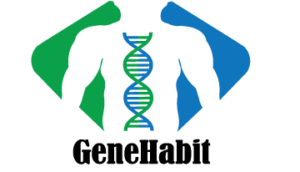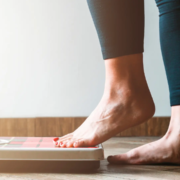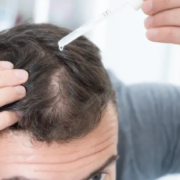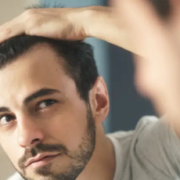Tag Archive for: Genetic Test
How to Get Enough Zinc for Healthy Hair: Foods, Genes, and More!
 Zinc is a nutrient that is essential for human health. It has a variety of roles in the body, including helping to form DNA and proteins and aiding in cell division. Zinc is also important for hair health. A zinc deficiency can lead to hair loss and other disorders. Luckily, zinc can be found in a variety of foods, so it is relatively easy to ensure you are getting enough of this nutrient. Additionally, genes may play a role in how well you absorb zinc from food. A DNA test can help to identify any genetic variants that may affect zinc absorption and help mitigate the risk of hair loss with low zinc levels.
Zinc is a nutrient that is essential for human health. It has a variety of roles in the body, including helping to form DNA and proteins and aiding in cell division. Zinc is also important for hair health. A zinc deficiency can lead to hair loss and other disorders. Luckily, zinc can be found in a variety of foods, so it is relatively easy to ensure you are getting enough of this nutrient. Additionally, genes may play a role in how well you absorb zinc from food. A DNA test can help to identify any genetic variants that may affect zinc absorption and help mitigate the risk of hair loss with low zinc levels.
Role Of Zinc In Overall Health
Zinc is an essential mineral that supports the immune system and keeps your metabolism running smoothly. It’s also involved in protein synthesis, and cell division and promotes healing from wounds or cuts by binding with vital vitamins such as vitamin C to form a protective barrier against infection – all while helping you feel healthier!
What Role Does Zinc Plays In Your Hair Health?
If you’re like most people, you probably don’t think much about zinc. But this essential mineral plays a vital role in many of your body’s functions, including hair growth. Zinc is involved in the production of keratin, the protein that makes up your hair. It also helps keep your scalp healthy and free from dandruff. A lack of zinc can lead to hair loss and slow down new hair growth.
How Deficiency Of Zinc Can Impact Hair Health
A zinc deficiency can impact hair health in a number of ways. For starters, it can cause your hair to become dry and brittle. It may also lead to hair loss or thinning hair. In some cases, a zinc deficiency can even cause your hair to change colour, becoming dull or grey. If you are experiencing any of these symptoms, it’s important to see your doctor and get tested for zinc deficiency. If it is confirmed that you are deficient in zinc, your doctor may recommend taking a zinc supplement or making changes to your diet in order to increase your intake of this mineral. By doing so, you can help improve the health of your hair and prevent further damage.
How One Can Get Zinc?

Zinc is found in many foods, including meat, poultry, seafood, nuts, and legumes. If you’re not getting enough zinc from your diet, you may want to consider taking a zinc supplement. Talk to your doctor before starting any supplements.
The Most Recommended Zinc Supplement Products by health experts are:
Thorne Research Zinc Picolinate
Their zinc picolinate is no exception and provides an exceptional dose of zinc that the body can readily use. This product provides 30 mg of zinc, which does not exceed tolerable upper intake levels, and it comes in one convenient capsule.
How Do Genes Impact Zinc Absorption?

Genes play a role in zinc absorption, as they do with most nutrients. There are specific genes that code for proteins involved in transporting zinc into the cells, and others that regulate how much zinc is absorbed from the intestine. Mutations in these genes can lead to zinc deficiency, even if someone consumes enough zinc in their diet. The advancement in genetics and DNA technology has allowed scientists to reveal several genes associated with zinc absorption. One such reported vastly for low levels is the CA1 gene, which was linked to both UK populations as well Japanese individuals suffering from Androgenic Alopecia or also known as “Male Hair Loss”. The study conducted on these two groups displayed those who carried negative versions had lower serum Zinc values.
With DNA Test Mitigate Hair Fall Risk By Knowing Zinc Deficiency Risk
The DNA test can help to mitigate the risk of hair loss by detecting low zinc levels. The DNA test offered looks at an individual’s genetic profile and determines if they are more likely to experience baldness or thinning in their scalps due to insufficient amounts, with this new strategy you’ll be sure that your treatment has a much better chance for success because doctors know exactly which supplements work best based on someone’s unique makeup – meaning zero guesswork involved!
By Taking Up DNA Test You Can Mitigate These Hair Loss Conditions Before Its too late:
Zinc deficiency can lead to thinning or balding as well an increased risk from various other diseases such as Wilson’s disease, and sickle cell disease. DNA testing would be worth it!
If you like to know more about DNA tests and how vitamins-minerals are processed by our bodies for hair health visit here
Have a look at our products with consent links:
HairLife DNA test is designed to identify and understand the risk of premature hair loss, greying, thinning, and baldness due to genetic factors, nutritional deficiencies, and stress. HairLife DNA test also identifies the specific type of hair issue and helps you to get a personalized hair care solution for the same. This personalized hair care solution will be recommended to keep your hair healthy and nourished based on your genetic reports. Click here to read more about the HairLife test
GeneFit DNA Test provides a 360-degree personalized genetic insight about your lifestyle and well-being risks that include – the risk of weight gain or loss, nutritional deficiencies, food sensitivities, optimal fitness activities, sleep, and stress. Click here to read more about the GeneFit test.
NutriLife DNA test gives an insight into your micronutrient requirements based on your genetic report. Get personalized recommendations for essential nutrient intake with the NutriLife DNA test report and include the recommended food sources in your diet to maximize the health benefits. The genetic tests also identify your food allergies, food sensitivities, and taste perception which impacts your food absorption in the body. Click here to read more about the NutriLife test
Omega-3 Supplements: The Essential Nutrient for Your Skin and Overall Health
Omega-3 fatty acids are important for your health because they play a role in many bodily functions, including cell growth and maintenance, blood clotting, and inflammation control. Some research also suggests that omega-3 fatty acids may improve mental health and cognitive function. Omega-3 is also one of the most essential nutrients for skin issues and skin care management because of its role in maintaining cell growth. If you’re not getting enough omega-3s from your diet, you may want to consider taking an omega-3 supplement. Talk to your doctor before doing so to make sure it’s the right choice for you.
Role Of Omega-3 Fatty Acid In Skin

Omega 3 fatty acids are a type of polyunsaturated fatty acid that is essential for human health. They are found in fish oils, walnuts, flaxseeds, and other plant-based oils. Omega 3 fatty acids play an essential role in skin health, as they help to maintain the skin’s barrier function and keep it healthy. They also help to reduce inflammation and promote wound healing. If you’re looking to improve your skin health, make sure you’re getting enough omega-3 fatty acids in your diet. You can do this by eating plenty of fish, nuts, and seeds, or by taking a supplement containing omega-3 fatty acids.
How Does Deficiency Of Omega-3 Impact Skin?
Omega-3 fatty acids are essential nutrients that are important for overall health. A deficiency of omega-3 can have a negative impact on the skin, leading to dryness, flaking, and an inability to heal properly. Omega-3 fatty acids play a role in maintaining the health of the skin by helping to keep it hydrated and preventing inflammation. When the body is deficient in omega-3 fatty acids, this can lead to an increase in inflammation and a decrease in the production of collagen, which is responsible for keeping the skin elastic and healthy. Additionally, a deficiency of omega-3 can lead to an increase in sebum production, which can cause acne or other skin problems. If you are experiencing problems with your skin, it is important to make sure that you are getting enough omega-3 fatty acids in your diet.
How Can One Get Omega-3 From Food Or Supplements?
There are many different ways to get omega-3 fatty acids into your diet. You can get them from food, or you can take supplements or through a DNA-based diet. Some foods that are high in omega-3 fatty acids include salmon, tuna, mackerel, and sardines. You can also find omega-3 fatty acids in some nuts and seeds, like walnuts and flaxseeds. If you’re not a fan of fish or nuts, you can also take omega-3 supplements. Just be sure to talk to your doctor before starting any supplement regimen, especially if you’re taking medication or have any health conditions.
Most Recommended Omega-3 Supplement Products By Health Experts Are:
- Best overall: mbg omega-3 potency+
- Best for newbies: Pure Encapsulations O.N.E
- Best budget: Nature-Made Burp-Less Mini Omega-3
- Best fish burp-free: NOW Foods Double Strength DHA-500
- Best vegan: Truvani Omega-3 from Algae
- Best cod liver oil: Big Bold Health Dutch Harbor Omega
What Is The Role Of Genes In Omega-3 Absorption?
Your genes play a role in how well your body can absorb omega-3s. For example, people with certain variants of the FADS1 gene absorb omega-3s less efficiently than those without these variants. This may explain why some people seem to benefit more from omega-3 supplements than others. A recent study on US Hispanics revealed that those suffering from severe skin inflammation like psoriasis or acne had significantly lower amounts, which led them to benefit when they consumed omega 3s in their daily diet; thus improving symptoms related to these conditions.
With DNA Test Mitigate Skin Disorder By Knowing Omega-3 Deficiency Risk
The best way to manage skin conditions is by identifying the root cause. DNA tests can help identify an omega-3 deficiency, which may increase your risk for these disorders and should be addressed with a thorough diet or supplement plan that includes this important nutrient in order to minimize potential problems especially if you have a hereditary history of them!
By Taking Up DNA Test You Can Mitigate These Skin Disorders Before Its too late:
With Omega-3 deficiency, not only could you be at risk for poor skin health and hair loss but also other diseases such as low immunity or inflammation. And all this because your body needs optimal guidelines to stay healthy! So why don’t we get tested with DNA Technology? It will pay off big time knowing everything from head to toe has been optimized according to genetic makeup.
If you like to know more about DNA tests and how vitamin-minerals are processed by our bodies for skin health visit here.
DNA- Based Skin Problems And Skin Care Solutions With SkinLife
Genetic testing for Skin problems reveals the risks for your skin type and issues related to it. With personalized genetic reports, an individual can potentially identify the risk for Acne, Sun damage, Pigmentation, Wrinkles, and Skin sensitivities associated with their skin. Genetic testing allows you to identify the right solution for your skin and maintain a healthy skincare routine.
Have a look at our products with consent links:
When you take a SkinLife DNA test it gives detailed and personalized genetic insights into your skin type and skin health-related risks. It identifies your risk of premature aging, sun damage, skin sensitivities, allergies, and more. Click here to read more about the SkinLife test
GeneFit DNA Test gives a 360-degree personalized genetic insight about your lifestyle and well-being risks that include – the risk of weight gain or loss, nutritional deficiencies, food sensitivities, optimal fitness activities, sleep, and stress. Click here to read more about the GeneFit test.
NutriLife DNA test provides detailed insight into your micronutrient requirements based on your genetic profile. Based on your NutriLife DNA reports, experts provide personalized recommendations for essential nutrient intake and include the recommended food sources in your diet to maximize the health benefits. The genetic tests also identify your food allergies, food sensitivities, and taste perception which impacts your food absorption in the body. Click here to read more about the NutriLife test
Selenium for Hair Growth: The Mineral Your locks have been Waiting For!
 Selenium is a nutrient that’s needed for many important processes in the body, including metabolism and thyroid function. It can only be obtained through diet so it doesn’t have any negative health effects when taken at proper doses. Selenium is an important mineral that functions in the body to help protect against damage from free radicals and infections. Selenoproteins function as enzymes; proteins that are involved with DNA repair as well reproduction. Selenium is an important mineral for hair growth, and people have known this for years. It’s just that its role in the process was underestimated until recent studies came out confirming what we already knew: selenium helps with both the strength as well as thickness of your locks!
Selenium is a nutrient that’s needed for many important processes in the body, including metabolism and thyroid function. It can only be obtained through diet so it doesn’t have any negative health effects when taken at proper doses. Selenium is an important mineral that functions in the body to help protect against damage from free radicals and infections. Selenoproteins function as enzymes; proteins that are involved with DNA repair as well reproduction. Selenium is an important mineral for hair growth, and people have known this for years. It’s just that its role in the process was underestimated until recent studies came out confirming what we already knew: selenium helps with both the strength as well as thickness of your locks!
Role Of Selenium In Overall Health
Selenium is an important mineral that offers many health benefits. It is a powerful antioxidant that can help protect your body against oxidative stress and chronic conditions such as heart disease and cancer. Selenium can also boost your immune system, making you less susceptible to infections and illnesses. Getting enough selenium in your diet is essential for good health, so make sure to include foods that are rich in this nutrient.
What Role Does Selenium Play In Your Hair Health?
Selenium is a mineral that is important for hair health. It helps to protect the scalp and hair from damage and it also helps to keep the hair healthy and shiny. Selenium is also necessary for the production of thyroid hormones, which are important for overall health. If you are not getting enough selenium in your diet, you may experience hair loss or thinning hair.
How Deficiency Of Selenium Can Impact Hair Health
Selenium is an important mineral that our bodies need for optimum health. However, many people are not getting enough selenium in their diets, and this can lead to a number of health problems, including hair loss. When it comes to hair health, selenium plays an important role in keeping the scalp healthy and the hair follicles strong. It also helps to prevent dryness and itching of the scalp, two common problems that can lead to hair loss. Selenium deficiency has also been linked to dandruff and other scalp conditions.
If you think your hair loss is getting severe, get your selenium level tested.
How One Can Get Selenium? 
The recommended daily intake of selenium for adults is 55 micrograms. Good sources of selenium include seafood such as tuna and sardines, nuts such as Brazil nuts and cashews, and seeds such as sunflower seeds. Selenium can also be found in fortified foods such as cereal and bread. There are some people who cannot meet their selenium requirement from food alone. These people may need to take a selenium supplement. Selenium supplements are available in both pill and liquid form. You can manage your selenium levels in your food with DNA-based diet. It is important to consult a doctor before starting a selenium supplement, as too much selenium can be toxic.
Most Recommended Selenium Supplement Products by health experts are:
- Klaire Labs Seleno Met
- Pure Encapsulations Selenomethionine
- NOW Foods Selenium (yeast-free)
- Bluebonnet Selenium
- NOW Foods EpiCor Plus Immunity
How Genes Impact Selenium Absorption? 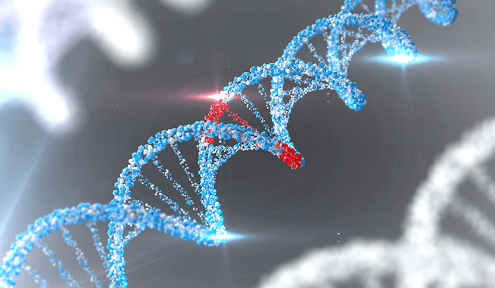
Scientists have found that several genes play a role in the metabolism of selenium, which is an important mineral for many bodily functions. Genes that are involved in selenium metabolism include those that encode enzymes needed for selenium uptake, transport, and storage. Mutations in these genes can lead to abnormalities in selenium levels and potentially to health problems. Therefore, it is important to understand the role of genes in selenium metabolism in order to maintain health and prevent disease.
A study conducted on US adults displayed that individuals carrying a negative version of the GPX1 gene showed low selenium absorption and had severe hair loss issues along with thyroid dysfunction. When these individuals included selenium intake in their diet for 4 months trial their hair loss process slowed down significantly.
With DNA Test Mitigate Hair Fall Risk By Knowing Selenium Deficiency Risk
The DNA test can help to stop hair loss by determining if you have low selenium levels. The new strategy looks at an individual’s genetic profile and determines whether they are more likely to experience baldness or thinning in their scalps due to selenium or any other nutritional deficiencies, with this information doctors know exactly which supplements work best for them – meaning zero guesswork involved!
By Taking Up DNA Test You Can Mitigate These Hair Loss Conditions Before Its too late:
- Androgenic Alopecia
- Alopecia Areata
- Frontal Fibrosing Alopecia
- Telogen Eluvium
Selenium deficiency can lead to thinning or balding as well an increased risk of various other diseases such like thyroid dysfunction, mental retardation, and fatigue. DNA testing would be worth it!
If you like to know more about DNA tests and how vitamins-minerals are processed by our bodies for hair health visit here
DNA- Based Hair Loss And Hair Care Solutions With HairLife
Genetic testing for Hair loss reveals the risks for an individual for their hair loss, hair thinning, or premature greying. Genetic testing also identifies the cause of premature hair loss, greying, thinning, or baldness due to genetic factors, nutritional deficiencies, and stress.
Have a look at our products with consent links:
HairLife DNA test helps you to identify and understand the risk of premature hair loss, greying, thinning, and baldness due to genetic factors, nutritional deficiencies, and stress. HairLife DNA test also pinpoints the specific type of hair issue and helps you to get a personalized hair care solution for the same. This personalized hair care solution will be designed to keep your hair healthy and nourished. Your personalized DNA report provides recommendations for hairstyles, nutrition recommended supplements, and hair care products. Click here to read more about the HairLife test
GeneFit DNA Test provides a 360-degree personalized genetic insight about your lifestyle and well-being risks that include – the risk of weight gain or loss, nutritional deficiencies, food sensitivities, optimal fitness activities, sleep, and stress. Click here to read more about the GeneFit test.
NutriLife DNA test gives an insight into your micronutrient requirements based on your genetic report. Get personalized recommendations for essential nutrient intake with the NutriLife DNA test report and include the recommended food sources in your diet to maximize the health benefits. The genetic tests also identifies your food allergies, food sensitivities, and taste perception which impacts your food absorption in the body. Click here to read more about the NutriLife test
The Importance Of Vitamin C For Skin Health: How To Get The Nutrient Your Skin Needs
Your skin is your body’s largest organ, and it’s important to keep it healthy! One essential nutrient for skin health is vitamin C. Vitamin C is a necessary nutrient for skin as it aids for the production of collagen, a protein that helps give your skin its structural support. Collagen also helps fight the signs of aging by reducing the appearance of wrinkles.
Role Of Vitamin C In Skin 
As we all know, Vitamin C is essential for overall health. But what many people don’t know is that Vitamin C is also very important for skin health. Vitamin C helps to protect the skin from damage caused by the sun and other environmental factors. It also helps to keep the skin healthy and looking young. Vitamin C is a powerful antioxidant that helps to fight free radicals. Free radicals can damage the skin, causing premature aging and wrinkles. Vitamin C can help to protect the skin from these harmful effects.
How Does Deficiency Of Vitamin C Impact Skin?
A deficiency in vitamin C can lead to a number of problems with the skin, including dryness, wrinkles, and even bruising easily. If you are experiencing any of these symptoms, it is likely that you are deficient in vitamin C. You can improve your skin health by adding more vitamin C-rich foods to your diet, or by taking a supplement.
How Can One Get Vitamin C From Food Or Supplements?
There are a few different ways to do so. You can get vitamin C from food sources, or you can take supplements. Let’s take a look at some of the best options for each.
Food Sources of Vitamin C
There are a number of different foods that contain high levels of vitamin C. Some of the best options include oranges, grapefruit, kiwis, strawberries, and broccoli. If you’re looking for other good sources of vitamin C, check out bell peppers, tomatoes, blackberries, and raspberries.
Vitamin C Supplements
If you don’t think you’re getting enough vitamin C from food sources alone, you may want to consider taking supplements. Supplement options include tablets, capsules, powders, and liquids. When choosing a supplement, be sure to read the label carefully to make sure you’re getting the right dosage. You should also talk to your doctor before starting any new supplement, just to be safe.
What Is The Role Of Genes In Vitamin C Absorption? 
Some people have a genetic condition that causes them to absorb less vitamin C than others. This condition is called hereditary hemochromatosis. People with this condition need to be especially careful to include vitamin C-rich foods in their diet and may need to take supplements to ensure that they are getting enough of this nutrient.
Scientists have uncovered several genes associated with low vitamin C absorption. One such gene is the SLC23A1 which codes for a protein called chloride channel, and it’s found in our bodies’ cells that control what goes into circulation – so if you don’t have enough of these channels then your blood will be less able to deliver oxygen throughout all parts! A study conducted on US adults showed those suffering from atopic dermatitis (a type Setup allergies) displayed lower levels than normal skin did; while controls who had standard measurements still appeared healthy despite having much higher rates.
Image- https://www.canva.com/photos/MADq3klzOmw-f019-2488/
With SkinLife DNA Test Mitigate Skin Disorder By Knowing Vitamin C Deficiency Risk
If you are struggling with a skin disorder, you may be interested in taking a DNA test to help mitigate your risk of vitamin C deficiency. Vitamin C is essential for the production of collagen, which is the main structural protein in the skin. A lack of vitamin C can lead to dryness, wrinkles, and a loss of elasticity in the skin. There are several different types of DNA tests that can be used to assess your risk of vitamin C deficiency. One type of test looks at single nucleotide polymorphisms (SNPs) that have been associated with a reduced ability to absorb vitamin C from the diet. Another type of test looks at gene mutations that can lead to impaired collagen production.
Knowing your risk of vitamin C deficiency can help you take steps to ensure that you are getting enough of this important nutrient. You may want to make sure that you include plenty of vitamin C-rich foods in your diet, or you may want to consider taking a vitamin C supplement for optimal skin health.
By Taking Up SkinLife DNA Test You Can Mitigate These Skin Disorders Before Its too late:
Your skin is a window to your overall wellness. With a lack of Vitamin C, you could be putting yourself at risk for various other diseases such as poor immunity and hair loss! DNA testing for Skin Problem & Skin Care Management would definitely pay off in ensuring that all aspects from the inside out are on track with what’s considered “optimal.”
If you like to know more about DNA tests and how vitamins-minerals are processed by our bodies for hair health visit here
Have a look at our products with consent links:
- SkinLife
When you take the SkinLife DNA test it provides you with detailed and personalized genetic insights into your skin type. It also reveals your risk of premature aging, sun damage, allergies, and more. Click here to read more about SkinLife test
- GeneFit
GeneFit DNA Test provides you with 360 degree personalized genetic insight about your lifestyle and fitness risks that include – the risk of weight gain or loss, nutritional deficiencies, food sensitivities, optimal physical activities, sleep, and stress. Click here to read more about GeneFit test.
- NutriLife
NutriLife DNA test reveals your nutritional requirements of micronutrients based on your genetic profile. It also identifies your risk of food sensitivities, food allergies, and taste perception. NutriLife DNA test report provides you with personalized recommendations for nutrient intake by including recommended food sources in your diet. Click here to read more about NutriLife test
Iron and Hair Health: The Vital Mineral Your Hair Needs
 Iron is an essential mineral for human health, playing a role in many different bodily functions. One of the most well-known roles of iron is its importance in the formation of red blood cells. However, iron also plays a critical role in hair health. Iron is essential for life. It’s used in many processes including oxygen transport and production of hormones, but most importantly it helps your body grow! Iron is a vital mineral for the health and beauty of your hair, but it often gets neglected. If you’re losing hairs then get checked to see if there’s an issue with iron levels in that area!
Iron is an essential mineral for human health, playing a role in many different bodily functions. One of the most well-known roles of iron is its importance in the formation of red blood cells. However, iron also plays a critical role in hair health. Iron is essential for life. It’s used in many processes including oxygen transport and production of hormones, but most importantly it helps your body grow! Iron is a vital mineral for the health and beauty of your hair, but it often gets neglected. If you’re losing hairs then get checked to see if there’s an issue with iron levels in that area!
Why Is Iron Important For Our Body?
Iron is important for our body because it helps us produce red blood cells. These cells are responsible for carrying oxygen throughout our bodies, and without enough iron, we can become anaemic. Symptoms of anaemia can include fatigue, shortness of breath, dizziness, and pale skin.
While there are many different types of anaemia, the most common is iron-deficiency anaemia. This type of anaemia can be caused by a number of factors, including a poor diet, blood loss, or pregnancy. Iron-deficiency anaemia can be treated by taking iron supplements and making sure to get enough iron in your diet.
Role Of Iron In Hair Health
In order for hair to grow and remain healthy, it needs a sufficient amount of iron. A lack of iron can lead to hair loss and a decrease in hair quality. This is because iron is necessary for the production of haemoglobin, which transports oxygen from the lungs to the rest of the body. Haemoglobin is also responsible for supplying nutrients to the scalp and hair follicles.
How Deficiency Of Iron Can Impact Hair Health
Iron is an important mineral for hair health. It helps to transport oxygen to the cells and tissues, including the hair follicles. Without enough iron, the hair follicles may become starved of oxygen, leading to weaker, thinner hair. An iron deficiency can also lead to hair loss.
If you think you may be deficient in iron, it’s important to see your doctor for a blood test. Treatment for iron deficiency usually involves taking iron supplements. Getting more iron-rich foods in your diet can also help improve your overall health and well-being.
How Can One Get Iron? 
Fortunately, there are many different ways to get the recommended amount of iron each day. You can eat foods that are high in iron, such as red meat, dark leafy greens, beans, and fortified cereals. You can also take iron supplements in the form of pills or injections.
Most Recommended Iron Supplement Products by health experts are:
- Best overall iron supplement: Thorne Iron Bisglycinate.
- Best affordable iron supplement: Nature Made Iron 65mg Tablets.
- Best iron supplement with vitamin C: Pure Encapsulations OptiFerin-C.
- Best vegan iron supplement with vitamin C: Garden of Life Vitamin Code Raw Iron.
If you are concerned about your hair health, or if you have noticed a decrease in hair quality or excessive hair loss, talk to your doctor about getting a blood test to check your iron levels. If your iron levels are low, there are hair loss genetic treatment options available that can help improve your hair health.
How Do Genes Impact Iron Absorption?
There are a number of factors that influence how well your body absorbs iron. One of these is your genes. Some individuals are simply better at absorbing iron than others. However, there are also genetic tests that can be performed to determine whether you have a genetic mutation that affects your ability to absorb iron. If you do have this mutation, there are supplements available that can help increase your iron levels.
The advances in genetics and DNA sequencing technology have enabled scientists to report several problems associated with low iron absorption. In a recent study conducted on Hispanics, US adults displayed that individuals suffering from alopecia or telogen conditions had significantly lower levels of iron when compared to healthy control group showing slower hair loss frequencies as per standard daily intake recommendations.
Another important factor that affects iron absorption is the presence of other minerals in the body. For example, zinc and copper play a role in the absorption of iron, so if you are deficient in either of these minerals, your body will be less able to absorb the iron from food sources.
Image- https://www.canva.com/photos/MADmTOqsi3Q–genetic-engineering/
With DNA Test Mitigate Hair Fall Risk By Knowing Iron Deficiency Risk
DNA tests can help to mitigate the risk of hair loss by detecting low iron levels. The test looks at an individual’s genetic profile and can determine if they are more likely to experience hair loss if they have low iron levels. With this new strategy, you can be sure that your hair loss treatment will have a much better chance of success. Doctors and experts know exactly which supplements are best for each individual this means zero guesswork and zero harmful side effects.
By Taking Up DNA Test You Can Mitigate These Hair Loss Conditions Before Its too late:
- Androgenic Alopecia
- Alopecia Areata
- Frontal Fibrosing Alopecia
- Telogen Eluvium
The lack of iron can lead to thinning or balding as well an increased risk of various other diseases such like low haemoglobin, fatigue and immunity problems. Getting tested for DNA would be worth it!
If you like to know more about DNA tests and how vitamins-minerals are processed by our bodies for hair health visit here
DNA- Based Hair Loss And Hair Care Solutions With HairLife
With Genetic testing for Hair loss, one can understand and know their risk for hair loss, hair thinning, or premature greying. Genetic testing also identifies the cause of premature hair loss, greying, thinning, or baldness due to genetic factors, nutritional deficiencies, and stress.
Have a look at our products with consent links:
HairLife DNA test helps you to identify the risk of premature hair loss, greying, thinning and baldness due to genetic factors, nutritional deficiencies and stress. HairLife DNA test also reveals the specific type of hair issues and a personalized hair care solution suitable for you to keep your hair healthy and nourished. Your personalised DNA report provides recommendations for hairstyles, nutrition recommended supplements, and hair care products. Click here to read more about the HairLife test
GeneFit DNA Test provides a 360 degree personalized genetic insight about your lifestyle and well-being risks that include – the risk of weight gain or loss, nutritional deficiencies, food sensitivities, optimal fitness activities, sleep, and stress. Click here to read more about GeneFit test.
NutriLife
NutriLife DNA test gives an insight into your nutritional requirements of vitamins and minerals based on your genetic profile. Get personalised recommendations for essential nutrient intake with NutriLife DNA test report and include the recommended food sources in your diet. Your food allergies or sensitivities along with taste perception are also identified in the genetic testing to maximize health benefits. Click here to read more about NutriLife test
DNA Testing: Your New Sleep And Stress Management Companion
Stress and sleep are two of the most important factors in our lives, making it imperative that we get enough of both. Stress is one of the leading causes of death worldwide, with over three million deaths per year tied to stress-related illnesses. Sleep deprivation has also been linked to problems ranging from weight gain to heart disease.
STRESS 
Stress is a natural part of life, especially in these pandemic times. While we can’t always control stressful events and situations, we can control our reactions and responses to them. When we understand how we react to stress — whether we use healthy or unhealthy coping mechanisms — we can begin to modify unhelpful thought patterns and behaviors into more positive ones.
Impact of stress on wellbeing
Stress affects how you feel, the way you think, and the way you act. Some common symptoms include dull headaches, irritability, stomach ache, insomnia, weight gain or loss, fatigue, muscle tension, and cravings for sugary or starchy foods.
Obesity is one of the most prevalent symptoms of stress, and it’s reached a pandemic level during these difficult times. Stress contributes to weight gain due to comfort eating, especially during the late night hours. These comfort foods include sweets full of refined sugars and fried foods that add unnecessary calories to your body that get stored under your skin or around your internal organs.
Role of genes in stress & stress-related obesity
Variations in our genes affect our hormones and enzymes during and after stressful events. For example, some individuals are more sensitive to stress than others are. These differences are due to certain genes that produce an elevated response to stressful events.
Recent studies have reported that DRD2 and OPRM1 genes are associated with stress binge eating. Individuals with a certain combination of these genes are at risk for binge eating disorders. About 11% of Caucasians and 14% of Asians carry these gene variations putting them at risk of being overweight or obese.
SLEEP 
Sleep is just as important to our health as food, water, and oxygen. Poor sleep can lead to physical health problems such as obesity, weakened immune system, and many more. It’s also linked to mental issues such as anxiety and depression.
Our sleep gets directly influenced by the circadian clock, which is a complex neurochemical system that uses signals from our environment to recreate an internal day-night rhythm. One important signal is the hormone cortisol, which helps us know when to sleep. If the circadian rhythm gets disrupted, it can cause insomnia, short or oversleep durations.
Impact of sleep on body weight
Poor sleep can lead to weight gain. Studies have shown that chronic sleep deprivation can disrupt our circadian rhythms, leading to weight gain as sleep-deprived individuals end up snacking at late hours. Furthermore, insufficient sleep is linked, to increased levels of oxidative stress, glucose intolerance, and insulin resistance.
Role of genes & genetic testing in sleep disorder
Genes have been found to play a major role in sleep. Researchers have discovered that an individual’s chronotype and circadian rhythm are determined by their genes. For example, CLOCK and ADORA genes impact circadian rhythm and caffeine-related sleep disorders respectively. According to a US population study, both these genes with specific variations are known to cause disrupted sleep patterns within obese individuals.
About GeneFIT Stress and Sleep DNA test
Through the GeneFIT DNA test, discover how your sleep pattern and your chronotype impact your physical fitness and overall performance. GeneFIT identifies your genetic variants to check if you are resistant or vulnerable to stress. The test also provides insights about genes and their effect on your sleeping pattern, if you are a morning lark or a night owl. Such information comes in handy to provide personalized sleep and stress management program that is provided along with your test results.
Unlock your individual genetic secrets to:
- Understand your risk of chronic stress and ways to manage it
- Adapting your lifestyle to your genes
- Working in the right profession to ensure your wellbeing
- Learning which leisure and physical activities will benefit you the most
For more details click here
Have a look at our products with consent links:
GeneFit provides a 360-degree personalized genetic insight into the risks associated with your lifestyle and fitness. This includes extreme weight gain or loss, nutritional deficiencies, food sensitivities, optimal physical activities, sleep, and stress. Personalized recommendations are given considering your genetic report and body type to maximize the health benefits. Click here to read more about the GeneFit test or connect with our experts
NutriFit DNA test identifies your nutritional demands and requirements based on your genetic reports. NutriFit DNA test report gives you a personalized report about your food sensitivities, food allergies, taste perception, and nutritional intake required for you. A personalized DNA-based diet is recommended considering your genetic report to enhance your health benefits. Click here to read more about the NutriLife test or connect with our experts
Genetic Testing: Unlock Your Taste Buds And Food Sensitivities
You may not be aware, but certain types of food may cause you more trouble than gain. Food sensitivities can impact your digestive system and make your body feel uncomfortable and bloated. They are hard to diagnose, but they are slowly being recognized as a serious medical condition. While it’s important not to panic if you have a food sensitivity, it’s a good idea to keep a note of the foods that affect you. Like allergies, food sensitivities can impact your digestive system and make your body feel uncomfortable.
TASTE PERCEPTION
Taste perception is an important function for living organisms to detect chemical substances contained in foods and judge whether they serve as nutrients for survival. Low or over perception of a particular taste can create serious health issues, leading to several metabolic disorders.
For example, an individual with a high fat taste preference tends to become overweight and have high cholesterol issues.
An individual’s taste sensitivity can vary depending on their genetic makeup.
Type Of Food Sensitivities Commonly Observed Globally:
- Lactose Sensitivity

Lactose intolerance is a condition in which the body is unable to partially digest lactose, a type of sugar found in dairy products. Lactose intolerant individuals experience diarrhea, gas, and bloating after consuming dairy products.
Lactose sensitivity is directly affected by genetic variation in lactose encoding genes known as LCT genes.
Research has shown that lactose sensitivity is largely affected by genetic variation in the LCT gene. Individuals who have negative variations of this gene are more likely to be lactose intolerant and have higher chances of being overweight.
- Gluten Sensitivity

Gluten intolerance or sensitivity is a chronic disease that affects a worldwide population. Gluten is a protein found in wheat, barley, and rye — three of the most consumed cereal grains in the world. This disease can cause digestive discomfort as well as many other side effects.
Gluten sensitivity is usually inheritable. Research has shown that individuals in families with the HLA-DQ7 gene or HLA-DQ2 gene are more likely to have strong reactions to gluten.
- Caffeine Sensitivity

Caffeine sensitivity can come from a variety of factors, including genetics. Caffeine is metabolized in the liver. If your liver is unable to process caffeine well, you are more likely to have a caffeine allergy. This occurs when caffeine triggers your immune system – it mistakes it for something harmful that needs to be fought off.
An individual’s sensitivity to caffeine is a result of their genetic makeup as proven by several studies. For example, individuals with caffeine sensitivity had negative variants for the CYP1A2 gene, which codes for an enzyme that breaks down caffeine.
- Carbohydrate Sensitivity

Carbohydrate intolerance is a condition that prevents the body from digesting certain carbohydrates due to a lack of digestive enzymes. Symptoms include diarrhea, bloating, and gas.
Some individuals are genetically predisposed to being sensitive to carbohydrates. It means that their bodies don’t tolerate or process refined carbohydrates very well. Carbs impact your body weight, fat, and insulin responsiveness.
Type Of Taste Perceptions Commonly Observed Globally:
- Sweet Taste Perception

Sweet taste perception is a condition; where an individual has more inclination toward consuming sweet-tasting food or beverages. Over dominance of sweet taste can cause several disorders like obesity, diabetes, etc.
As per studies, genetic variation impacting taste receptors (TAS1R1 genes) impact sweet taste craving.
- Salt Taste Perception

Salt is essential for body metabolism, however, excess salt or sodium intake can cause high blood pressure in those who are genetically susceptible. Studies have shown the variation in the TRPV1 genes may modify salt taste perception in humans.
- Fat Taste Perception

“Fat” is the term used to refer to naturally occurring triglycerides. Over consumption of fat has negative health impacts and increases the risk of morbidities, such as obesity, diabetes, and cancer. Fat taste perception has become a vital cog to measure fat intake. Several taste receptor genes strongly influence taste perceptions which are directly proportional to the amount of intake.
- Bitter Taste Perception

Bitterness can be described as a sharp, pungent, or disagreeable flavor. Bitterness is neither salty nor sour but may accompany these flavor sensations. There is a ‘supertaster’ gene that determines if you are able to detect certain bitter compounds found in common foods. High bitter taste sensitivity is proven to increase cravings for alcoholic beverages, insomnia, and high blood pressure.

Role Of Your Genes In Food Sensitivity And Taste Perception
Scientists have recently identified several genes that determine how our bodies metabolize food. It is important to note that these same genes also impact food sensitivities and influence our taste perception.
Research has shown that taste perceptions are directly influenced by genetic variations that affect taste receptors. How an individual experiences tasting a particular taste is dependent on the tendency to over-consume it. If someone enjoys the meaty taste, they will be drawn more to fatty foods with a meaty taste. Thus, making the individuals more likely to suffer from weight or cholesterol issues.
About NutriLife Test For Food Sensitivity And Taste Perception –
Food Sensitivities & Intolerance
Find which foods you are sensitive to
You may not be aware but certain types of food may cause you more trouble than gain. Our food intolerance reports help you understand any foods you should avoid based on your genes.
Report Includes:
- Lactose Intolerance
- Carbohydrate Intolerance
- Caffeine Sensitivity
- Salt Sensitivity
- Fructose Intolerance
- Celiac Disease Predisposition
NutriLife Test – Test For Taste Perception & Food Preferences
Taste perception is an important function for living organisms to detect chemical substances contained in foods and judge whether they serve as nutrients for survival. Low or over perception of a particular taste preference can you into several metabolic disorders. A distorted sense of taste can be a risk factor for many metabolic diseases like heart disease, diabetes, stroke, and other illnesses. Your report will identify if you are hyper or hypo sensitive to a particular taste and its effects.
TASTE PERCEPTION
- Sweet taste perception
- Salt taste perception
- Bitter taste perception
- Fat taste perception
- Umami taste perception
For more details click here
Here are our consent products with links –
NutriLife DNA test identifies your micronutrient demands, taste perception, food intolerance, and food allergies based on your genetic reports. NutriLife DNA test report provides you with personalized recommendations according to your body requirements and genetic reports. Start your journey to keep your body healthy and in an optimal weight with NutriLife. Click here to read more about NutriLife test or connect with our experts
